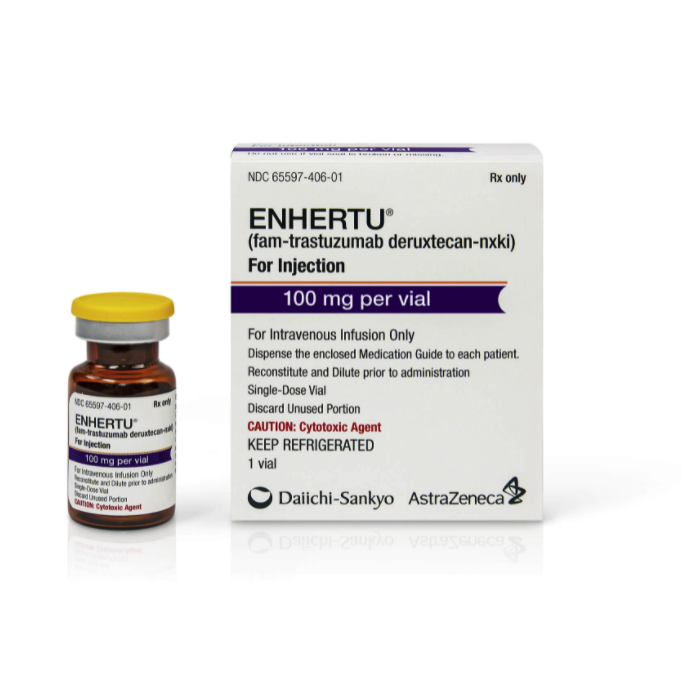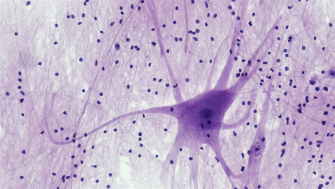Enhertu as Tumor-Agnostic Therapy: Important Updates for Non-US Cancer Patients
Last updated: 30 October 2024

You can legally access new medicines, even if they are not approved in your country.
Learn howSince its initial FDA approval in 2019, Enhertu has been making continuous advancements in its cancer treatment role.
Initially approved as a third-line therapy for HER2-positive breast cancer, it is now also an approved treatment for non-small cell lung cancer, gastric cancer, and, most recently, all HER2-positive solid tumors. And when it comes to breast cancer, recent studies suggest that some patients may benefit from being treated with Enhertu before chemotherapy 1.
If you or a loved one are a patient with a HER2-positive solid tumor, you may want to understand more about Enhertu's latest approval. Including when you may be able to access the treatment for its new indications outside the USA.
Here's what you need to know.
What type of cancer is Enhertu for?
As a drug-antibody conjugate, Enhertu is specifically designed to target tumors with a HER2 expression. HER-2 is a protein involved in normal cell growth, which can become overactive in certain tumors.
As of July 2024, these are the types of HER2-expressing tumors that Enhertu is approved for in the EU:
- HER2-positive metastatic breast cancer, which cannot be surgically removed;
- HER2-low metastatic breast cancer, which cannot be removed by surgery;
- HER2-mutated non-small cell lung cancer (NSCLC);
- HER2-positive advanced gastric cancer (stomach cancer) or gastro-oesophageal junction cancer 2.
In the USA, Enhertu is also approved for:
- previously treated metastatic HER2-positive solid tumors 3.
With the latest FDA approval, Enhertu is now the first and only FDA-approved tumor agnostic treatment (i.e. to be used in all types of cancer).
What is the success rate of Enhertu in solid tumors?
Enhertu's recent FDA approval for use in HER2-positive solid tumors was informed by the results of the DESTINY-PanTumor02, DESTINY-Lung01 and DESTINY-CRC02 trials.
Here are the key reported results of these trials.
Enhertu for pancreatic cancer
- 4% of patients treated with Enhertu had their tumors shrink or disappear;
- The median duration of response was 5.7 months;
- The median progression-free survival was 3.2 months;
- The median overall survival was 5 months 4.
Enhertu for ovarian cancer
- 45% of patients treated with Enhertu had their tumors shrink or disappear;
- The median duration of response was 11.3 months;
- The median progression-free survival was 5.9 months;
- The median overall survival was 13.2 months 4.
Enhertu for bladder cancer
- 39% of patients treated with Enhertu had their tumors shrink or disappear;
- The median duration of response was 8.7 months;
- The median progression-free survival was 7 months;
- The median overall survival was 12.8 months 4.
Enhertu for endometrial cancer
- 57.5% of patients treated with Enhertu had their tumors shrink or disappear;
- The median duration of response was not reached at data cutoff;
- The median progression-free survival was 11.1 months;
- The median overall survival was 26 months 4.
Enhertu for cervical cancer
- 50% of patients treated with Enhertu had their tumors shrink or disappear;
- The median duration of response was 14.2 months;
- The median progression-free survival was 7 months;
- The median overall survival was 13.6 months 4.
Enhertu for biliary tract cancer (BTC)
- 22% of patients treated with Enhertu had their tumors shrink or disappear;
- The median duration of response was 8.6 months;
- The median progression-free survival was 4.6 months;
- The median overall survival was 7 months 4.
Enhertu for other tumors
In the DESTINY-PanTumor02 trial, patients with other types of HER2-expressing cancer were also included - e.g. extramammary Paget disease, head and neck cancer, oropharyngeal neoplasm, and salivary gland cancer. The results for them were grouped together, and some of the highlights include:
- 30% of patients treated with Enhertu had their tumors shrink or disappear;
- The median duration of response was 22.1 months;
- The median progression-free survival was 8.8 months;
- The median overall survival was 21 months 4.
Is Enhertu approved for tumor agnostic treatment?
That depends on your location. In the USA, Enhertu is the first tumor agnostic treatment to get approval. This means that it can be used on all cancer types, as long as they have the biomarker/mutation targeted by the medicine. In Enhertu's case, that's HER-2.
However, if you're based in Europe, the UK, or elsewhere outside the USA, Enhertu is not yet approved as a tumor agnostic treatment. This is possibly only a matter of time.
Can your doctor prescribe Enhertu for solid tumors outside the USA?
The short answer is yes. However, your doctor and only your doctor can make that decision.
Enhertu has not yet been approved outside the USA for the treatment of HER2-positive solid tumors such as ovarian, pancreatic, endometrial, bladder, and more. However, your doctor has the authority to already prescribe the medicine for these indications anyway. They could do this based on the reported results of the DESTINY-PanTumor02 clinical trial, and on the specifics of your case.
When a doctor prescribes a medicine for treating a disease it's not locally approved for (yet), that's called off-label use. An off-label use prescription may be difficult to fill in some countries, depending on local regulations and availability. However, it's always possible to fill it using the Named Patient Import regulation. Please be aware your health insurer might not cover cost of off-label use or Named Patient Import.
Has your doctor made the decision to prescribe Enhertu for your HER2-expressing solid tumor? Share your prescription with us and our expert team will support you with getting Enhertu immediately.
References:
- Fidler, Ben. With new Enhertu data, an ADC could overtake chemo in breast cancer. BioPharma Dive, 2 June 2024.
- Enhertu. European Medicines Agency, Accessed 16 July 2024.
- Enhertu approved in the US as first tumour-agnostic HER2-directed therapy for previously treated patients with metastatic HER2-positive solid tumours. AstraZeneca, 6 April 2024.
- Enhertu demonstrated clinically meaningful survival across multiple HER2-expressing advanced solid tumours in DESTINY-PanTumor02 Phase II trial. AstraZeneca, 23 October 2023.





